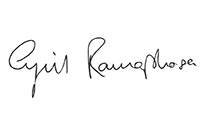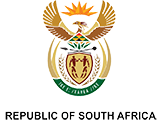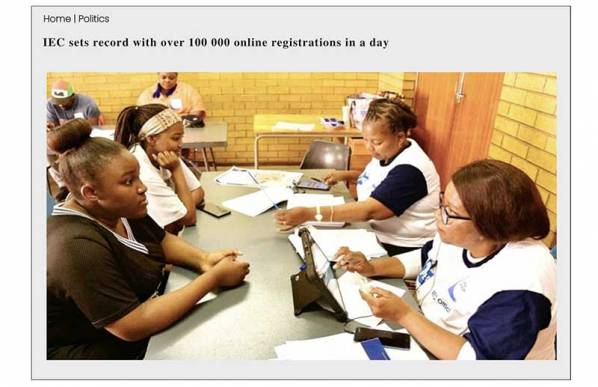Dear Fellow South African,
In just over a month and a half, we will hold the seventh general election since we attained our democracy in 1994.
South Africa’s electoral processes, together with the rights enjoyed by citizens and political parties to organise, campaign and contest, are among the greatest strengths of our constitutional order.
Political contestation in our country takes place freely and openly. The media is free to report. We have independent courts that administer justice without fear or favour, including an Electoral Court that oversees the work of the Independent Electoral Commission (IEC) and the conduct of elections.
As the country counts down to the election, the vibrant and robust campaigning that is taking place reflects how South Africa’s politics continues to evolve and mature. It is also a reflection of the many different views in our society and the variety of choices that voters have.
In a democracy such as ours, we should not be worried about differences, even when sharply expressed. That is because the vast majority of South Africans value and respect the democratic process. They have faith in the rule of law and know that any disputes can be resolved through the courts and other legal avenues.
Over the past 30 years we have held elections that are not only free and fair, but also peaceful and free of intimidation. Dire predictions of South Africa ‘regressing into violence’ or ‘democratic backsliding’ that regrettably remain a common feature of some reportage and analysis have been proven wrong time and again.
According to the 2023 Electoral Integrity Global Report, South Africa ranks third highest on the continent when it comes to perceptions of electoral integrity. The report is made up of expert assessments of electoral integrity in 169 countries around the world, using indicators such as electoral laws and procedures, voting processes, campaign financing, media coverage and vote counting.
The majority of South Africans recognise the importance of their vote and believe they have a duty to vote. Research commissioned by the IEC found that, ahead of the 2021 local government elections, almost three-fifths of South Africans, or 57%, believed that it was their duty to vote. While youth apathy is often cited as a problem in our country, some 55% of 18-24 year olds saw it as their duty to vote. It is significant that young people accounted for over 78% of new voter registrations last year. The IEC research also found that the majority of respondents agreed that democracy is preferable to other kinds of government.
Despite its many challenges, our democracy is in good health. Even as political and other forms of contestation continue in the run-up to this year’s polls, they are taking place under the broad umbrella of a constitutional order characterised by fundamental freedoms and human rights.
It is up to us all to ensure that this year’s election is a success in our ongoing journey of democratic consolidation. It is up to us all, whether as government, political parties, candidates, voters, the media or civil society organisations, to play our part by ensuring that our actions and words inspire faith in our democracy. We must continue to work together to ensure that nothing undermines the integrity of our elections.
Above all, it is up to us all to ensure that this hard-won right to vote, for which so many sacrificed so much, is exercised by every eligible citizen in a climate free of intimidation and all forms of violence.
Having proven the prophets of doom wrong time and again, let this year’s election be yet another affirmation of the strength of our constitutional order, our institutions and our democracy.
With best regards,

- Tags:
- Elections /
- Democracy /
- Electoral Court /
- Independent Electoral Commission /
- Voting /
- Constitution
Tweet



